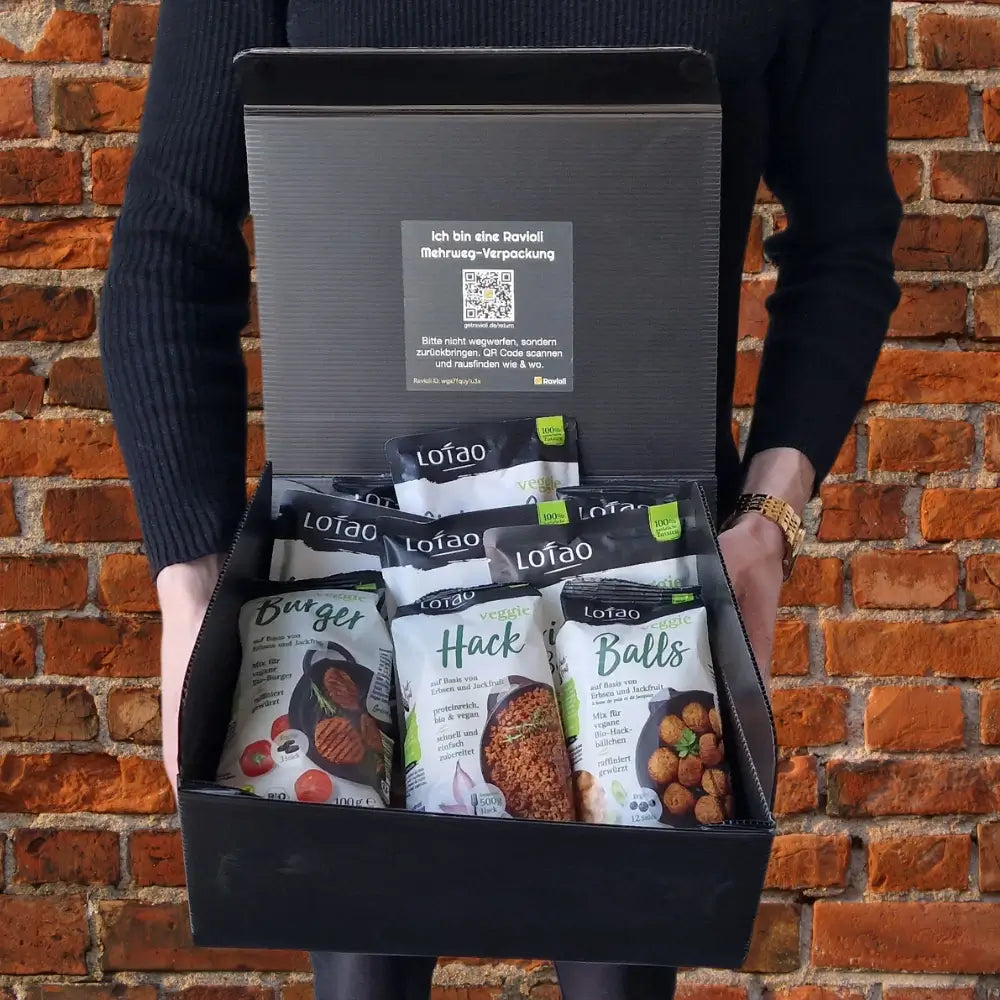Anyone who searches for information on the Internet about jackfruit as a meat substitute will inevitably be confronted with the topic of ecological balance. The usefulness of using jackfruit as a meat alternative is fundamentally questioned. Tenor: The jackfruit only thrives in the tropics, is processed there and therefore already has a fairly large “CO2 footprint” when it comes to our stores. The huge monoculture jackfruit plantations in India and Bangladesh are also cited as a disadvantage for people and the environment.
In conversation with Hugo Lamers:
But is jackfruit as a meat substitute actually such an eco-killer as stated? We discussed with Hugo Lamers from Bioversity International and interviewed him about Lotao Green Jackfruit. Here is our conversation in full:
Risolier: Does jackfruit actually perform worse as a meat substitute than meat or soy when it comes to ecological balance?
Hugo: I read the articles about the low sustainability or carbon footprint of jackfruit. These articles typically do not provide any substantial evidence to support these claims. Compared to alternatives such as soy or meat, jackfruit is likely to do much better.
Risolier: How do you come to this conclusion?
If we compare jackfruit with soybeans, jackfruit has more carbon and water efficiency. Soy is a plant and requires more water, pesticides and fertilizer compared to a tree like jackfruit - even if it is grown organically [1]. Soybean cultivation usually takes place in distant countries such as China and Brazil.

The young jackfruit is a wonderful alternative to meat
The processing of soy into tofu or shreds is much more intensive than jackfruit, which only needs to be cut, heated and packaged.
Even if soy is grown in Germany in a low-carbon system, this intensive processing could lead to higher CO2 emissions than jackfruit [2].
In addition, sea freight is already quite efficient in terms of carbon and energy. If one day we switch to ships with electric or hybrid engines or to much more economical engines, this will continue to improve. This is what we should focus on in the near future.
Risolier: And how would you see the emissions from jackfruit compared to those from meat?
Compared to meat, the production of jackfruit is associated with much lower CO2 emissions. Animals need a lot of food and produce methane. Jackfruit trees produce oxygen!
The processing and transport of meat (slaughter and cold chain) are also much more carbon intensive compared to jackfruit.
Conclusion: Compared to meat and soy-based meat alternatives, jackfruit, in my opinion, has far better water, energy and carbon efficiency. But that needs research and solid evidence. As far as I know, there is no study on this - and it would certainly be interesting to create one.
Risolier: Where do CO2 emissions primarily occur in jackfruit cultivation and production?
Hugo: The jackfruit comes from tropical countries and is processed in the area of origin, which leads to CO2 emissions. That's right. Emissions occur mainly during jackfruit cultivation, jackfruit processing (cutting, packaging, storage), transportation (sea freight) and consumption. However, jackfruit cultivation itself results in relatively few emissions because the jackfruit does not require much fertilizer or disease control agents.
Research shows that most CO2 emissions for food products are caused during the cultivation of the plants, as well as by the retailer and the end customer themselves, for example when the customer goes to the store, brings food home in the car and consumes it.
Compared to the “last mile emissions” from trucks and cars, even transporting large quantities by sea container is relatively less problematic than, for example, transporting food by truck from southern Italy. Air transport also has a strong negative impact on the carbon footprint - but this is not used for jackfruit.
Risolier: What are the biggest disadvantages of monoculture jackfruit plantations in Asia?
Hugo: The claim that jackfruit is generally grown in large plantations and monocultures is not correct. Jackfruit comes from India, specifically from the Western Ghats, which is considered a "biodiversity hotspot" and is the origin of many spices. 95% of jackfruit is grown on field edges, in backyards and forests near villages.
In India, jackfruit is a “poor man's food” - every farmer has 1-2 trees. This is similar in Malaysia, Thailand and Sri Lanka. Under no circumstances should jackfruit be confused with durian plantations, which are more common in Malaysia and Thailand. The durian fruit looks similar, but has nothing to do with the jackfruit. In recent years, few companies have emerged that grow jackfruit for export, particularly in Malaysia and Thailand. However, there are very few large jackfruit plantations in these two countries. However, if such large companies should one day dominate the export market, the situation will unfortunately look different again.
Risolier: Lotao sources its jackfruit from many small farmer cooperatives and has now started its own jackfruit project together with partners in India. Can you say something about that?
Hugo: With the start of the development project, Lotao wants, among other things, to avoid small farmers being pushed out of the jackfruit export market and corporations taking over the jackfruit issue with new large plantations. For example, farmers should receive their own training to optimize the cultivation and harvest of young jackfruit. Small trees and seeds should be distributed free of charge in order to improve local ecosystems and reduce forest degradation. Consideration is also being given to setting up new jackfruit collection stations.
Even if companies with large plantations were to establish themselves one day, we are confident that thanks to the project we will have a strong chance on the market together with small farmers.
Risolier: Then we just have to keep our fingers crossed that our “project draft” is also positively approved by the authorities. Thank you for the interview!





































Leave a comment